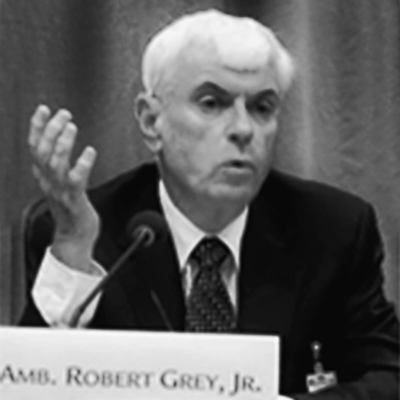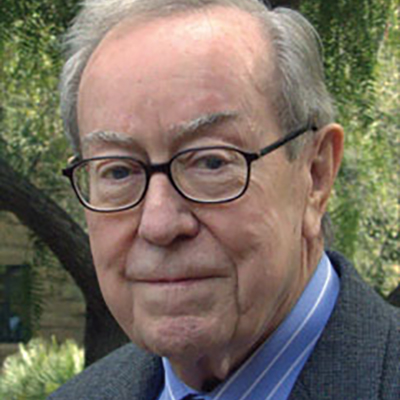The Nonpartisan Security Group
GSI has convened a core of experts with exceptional experience in diplomacy, law, intelligence, military affairs, and international security, to form the Nonpartisan Security Group (NSG).
Its mission is to educate, inspire, and advocate for policies that reduce conflict, strengthen the rule of law, prevent the proliferation of weapons of mass destruction, and advance toward a nuclear weapons free world.
Addressing and Improving the Current Nuclear Policy Paradigm
There is a now a critical need to educate U.S. Representatives, Senators, their staffs, State Department and other officials, as well as public opinion makers, the public, and the press on issues relating to global security and the value and substantive accomplishments in the area of diplomacy, arms control, nonproliferation and disarmament. Without these tools excessive reliance on military power becomes increasing likely and in the arena of nuclear weapons exceptionally hazardous.
For this reason the Global Security Institute has gathered a group of outstanding former diplomats and experts with deep experience in international security issues and successful advocacy. In fact, their collective successes in making our world a safer place is nothing short of inspiring. While the members of the Nonpartisan Security Group do not always fully agree with each other on every aspect of public policy, they are united by an urgent need to assist key constituencies in understanding and responding to the extreme security challenges facing the United States and the world today.
NSG is informed by the successes of the Bipartisan Security Group, which included successful education and advocacy in the U.S. Congress and the executive branch and was able to advance fulfillment of nuclear nonproliferation and disarmament treaty commitments. It helped stimulate hearings in Congress and numerous educational events. (Testimonies to Congress by BSG members | Report: GSI Experts Testify Before Congress | Bipartisan Task Force on Limits of Unilateralism).
With an Administration seemingly unconcerned with the consequences of downgrading treaties, this educational service is critical to global security. If the U.S. fails to pursue the power of law it will help to create a world where only power counts. This would be catastrophically dangerous and an insult to the lives and treasure expended by the U.S. to create the modern world where commerce, travel, communications, and generally peace is pursued in a rule based, norm based, peaceful fashion. The alternative will be violence and war.
The NSG’s interests include a focus on several critically important matters of international security. Some are of immediate concern and action and some are more long term:
- Preserving and strengthening international security based on the rule of law, diplomacy, identified shared interests, cooperation, and treaties
- Preserving and strengthening the Nuclear Nonproliferation Treaty with a particular emphasis on fulfilling existing political and legal commitments to nuclear nonproliferation and disarmament
- Preserving and strengthening the Chemical Weapons Convention and the Biological Weapons Convention
- Constraining the use of nuclear weapons
- Preventing the weaponization of space
- Ending the further production of weapons usable fissile material
- Lowering the operational posture of nuclear weapons
- Making permanent and legally binding the ending of testing of nuclear weapons
- Stopping the arbitrary use of force and preventing war
- Establishing a new executive branch agency designed to analyze and present to the President proposals for cooperative security measures affecting new weapons technologies that have the potential for lasting damage to humanity.
Members
 Jonathan Granoff
Jonathan Granoff
President, Global Security Institute. Attorney, author and international advocate emphasizing the legal and ethical dimensions of human development and security. Read More
 Ambassador Robert T. Grey, Jr.
Ambassador Robert T. Grey, Jr.
Former Political Advisor to the Supreme Allied Commander at NATO, former Counselor for Political Affairs of the US Mission to the UN, and more. Read More
 Ambassador Thomas Graham, Jr.
Ambassador Thomas Graham, Jr.
Senior U.S. diplomat involved in the negotiation of every major international arms control and non-proliferation agreement for the past 30 years. Read More
 Ambassador James Goodby
Ambassador James Goodby
Held five ambassadorial positions under three Presidents. Negotiator on limited nuclear test ban treaty, START, the Conference on Disarmament in Europe, and the Nunn-Lugar program. Read More
 Nancy Gallagher
Nancy Gallagher
High level arms control specialist and Presidential advisor. Read More
 David Koplow
David Koplow
Former Deputy General Counsel for International Affairs at Department of Defense, current Georgetown law professor specializing in public international law and national security law. Read More
 Ambassador Bonnie Jenkins
Ambassador Bonnie Jenkins
Former Ambassador at the U.S. Department of State as Coordinator for Threat Reduction Programs in the Bureau of International Security and Nonproliferation. Department of State lead on the Nuclear Security Summit. Read More
